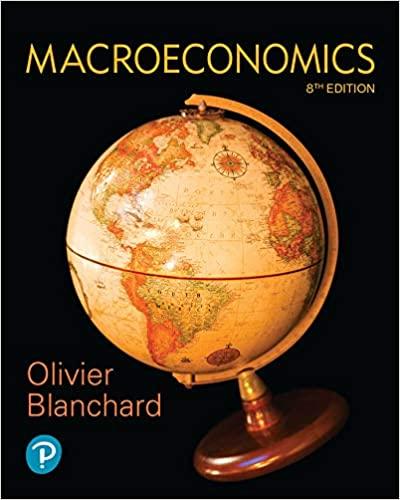Label each of the following statements true, false, or uncertain. Explain briefly. a. The interest rate parity
Question:
Label each of the following statements true, false, or uncertain. Explain briefly.
a. The interest rate parity condition means that interest rates are equal across countries.
b. Other things being equal, the interest parity condition implies that the domestic currency will appreciate in response to an increase in the expected exchange rate.
c. If financial investors expect the dollar to depreciate against the yen over the coming year, one-year interest rates will be higher in the United States than in Japan.
d. If the expected exchange rate appreciates, the current exchange rate immediately appreciates.
e. The central bank influences the value of the exchange rate by changing the domestic interest rate relative to the foreign interest rate.
f. An increase in domestic interest rates, all other factors equal, increases exports.
g. A fiscal expansion, all other factors equal, tends to increase net exports.
h. Fiscal policy has a greater effect on output in an economy with fixed exchange rates than in an economy with flexible exchange rates.
i. Under a fixed exchange rate, the central bank must keep the domestic interest rate equal to the foreign interest rates.
j. One important issue with increasing tariffs on imports into your country as a way of reducing your trade deficit is that other countries may retaliate by increasing their tariffs on your exports (their imports).
Step by Step Answer:






